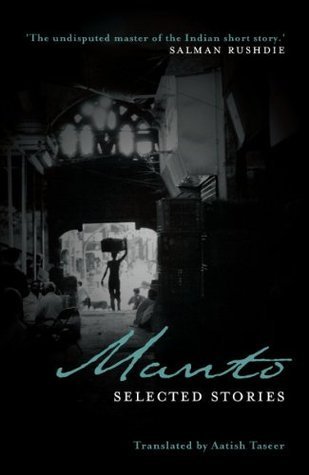Manto: Selected Stories
Only recently, I think, Manto is getting traction once again. A writer disowned by his country because of cultural bigotry (This act is an irony itself since Manto himself left his country and then regretted it.) and was unable to grow in his new ground, died as a middle-aged man.
The stories are indeed well-chosen, as the translator claimed to show the spectrum of Manto’s ability. I can also vouch for the translation quality because I’ve already read some excellent translations of Manto in Bengali. Since all the languages in the Indian subcontinent are kin, they share similarities. You can easily get a vibe of the original writing.
To see in Manto’s eyes is like seeing with sensors rather than wisdom. You don’t need any special depth to understand Manto, I think. His writings are all about the things that are alive. You’ll rarely find any description about the environment in his writings, but whenever you get some, they will hit some of your nerves. You may find yourself beside a long wall with the stink and stains of urine, or in a room so small that you may suffocate. These stains and stinks, these feelings of suffocation, are lively. Attention to minute details, which is a strength for many writers, is almost absent in his works. Rather, he talks about people's minds and thoughts in length, what they were thinking, acting, and living… The stories are stories of living things, and you’ll start living and breathing in these stories.
Time to time, we talk about this and that, the responsibilities of writers and artists in general. Well, to be truthful, an artist’s only responsibility is to speak his mind truthfully. To do that, an artist may, and historically always has been, an iconoclast in their style, subject, and expression. Obscene, Manto was, and also sceptical about the then-contemporary ideas of revolution and freedom. An icon, be it Gandhi or Virginity, he has challenged. By doing this, he expressed truths that transcend beyond society's ethics, yet are very close to our human self.
 The gentle dhobi who transforms into a killer, a prostitute who is more child than woman, the cocky, young coachman who falls in love at first sight, a father convinced that his son will die before his first birthday. Saadat Hasan Manto’s stories are vivid, dangerous and troubling and they slice into the everyday world to reveal its sombre, dark heart. These stories were written from the mid 30s on, many under the shadow of Partition. No Indian writer since has quite managed to capture the underbelly of Indian life with as much sympathy and colour. In a new translation that for the first time captures the richness of Manto’s prose and its combination of high emotion and taut narrative, this is a classic collection from the master of the Indian short story.
The gentle dhobi who transforms into a killer, a prostitute who is more child than woman, the cocky, young coachman who falls in love at first sight, a father convinced that his son will die before his first birthday. Saadat Hasan Manto’s stories are vivid, dangerous and troubling and they slice into the everyday world to reveal its sombre, dark heart. These stories were written from the mid 30s on, many under the shadow of Partition. No Indian writer since has quite managed to capture the underbelly of Indian life with as much sympathy and colour. In a new translation that for the first time captures the richness of Manto’s prose and its combination of high emotion and taut narrative, this is a classic collection from the master of the Indian short story.